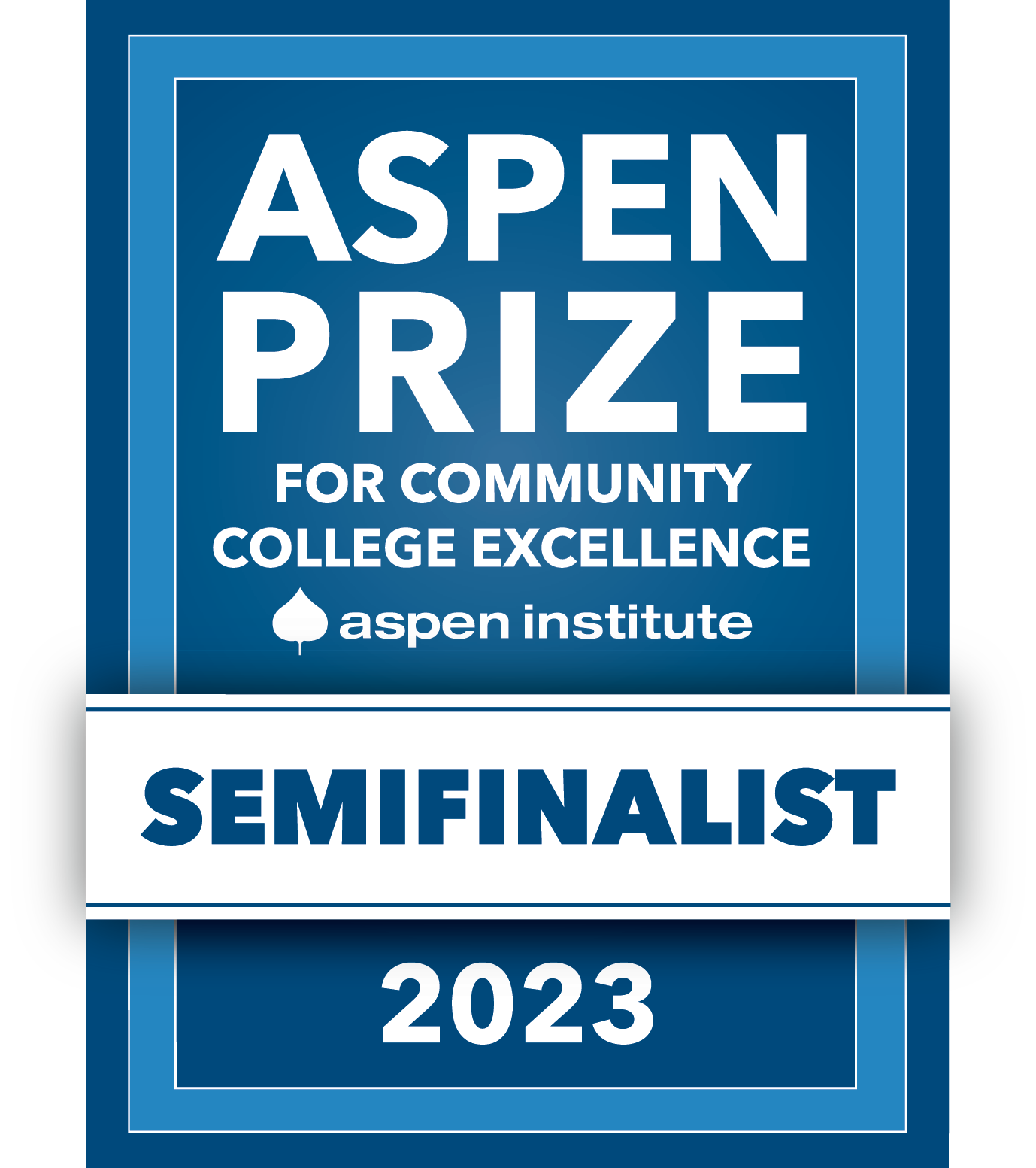- Welcome
- Campus Maps
- History
- Mission Statement
- Accreditation
- Administration
- Employment
- Human Resources Employment Process FAQ
- Position Vacancies
- Salary Schedule (PDF)
- Employee Benefits
- Paid Holidays
- Employee Handbook (PDF)
- Faculty Handbook (PDF)
- BENCOR Special Pay Plan (PDF)
- Social Security Collection and Usage
- Affordable Care Act Notice (PDF)
- Social Security Disclosure Summary (PDF)
- Tobacco-Free College
- Drug-Free Workplace & Campuses
- Technology Usage Acknowledgement (PDF)
- Employee Safety Manual (PDF)
- SFSC’s Annual Security and Fire Safety Report (PDF)
- Calendars
- News
- Social Media
- Honoring Our Retirees
- Celebrating Our Trustees
AVON PARK, Fla. – March 2, 2018 – Combining her experience as a teacher and her desire to travel, Sheri Stolte, a South Florida State College alumna, would find herself immersed in the cultures of two countries, South Korea and Canada. Through that experience, she learned how invaluable flexibility is in teaching.
Stolte, a native of Lake Placid, Fla., graduated from South Florida State College in 2004 with an Associate in Arts degree. She followed it by earning her Bachelor of Arts degree in elementary education, with an English for Speakers of Other Languages (ESOL) endorsement, from Florida Gulf Coast University in Fort Myers. She spent six years teaching fourth grade at Crestwell School, a private institution in that same city.
Stolte always wanted to travel extensively but wasn’t sure how to do that and work at the same time. While looking through Facebook one day, she found a company called Access South Korea (ASK). The company had been established by a group of Canadians and Americans who wanted to teach overseas.
“I researched their business, and they got good reviews,” Stolte said. “I didn’t see any red flags, so I looked into it further.” ASK required that an applicant prove they were a teacher in good standing and provide a criminal background check and letters of recommendation.
Stolte’s interest in South Korea was piqued by a friend during her college days. “She was into Asian cultures and introduced me to their cuisines and histories,” she said. “One of the things she kept telling me was how nice and welcoming South Koreans are.”
Through ASK, she got a job teaching in South Korea at a Hagwon, a for-profit private language academy. Many students attend English classes at hagwons after their normal school day. “So I taught kindergarten during the day,” she said. “In the evenings, I taught grades two to eight.”
During her two years in South Korea, Stolte learned to be more flexible in a teaching environment. “The six years at Crestwell School was predictable stability,” she said. “There was rarely a surprise. I could plan classes and events a month ahead. But in Korea, it was different every day. You didn’t know if you’d be going on a field trip or if parents were coming in to watch your class that day. We could be told, ‘We’re going to have a school fair tomorrow, so we have to stay and blow up balloons.’ If you can teach in South Korea, you can teach anywhere.”
Stolte found that appearance is important at a school in South Korea. “You must be professional looking at all times,” she said. “We had cameras in all the classrooms, so the parents could watch anytime they wanted. But it’s a challenge to look professional all the time when you’re working with kindergartners.”
After a long-distance relationship evolved, Stolte moved to Alberta, Canada during the summer of 2014, to be with her future husband Evan. She now teaches at a school on a First Nations reserve, called Sunchild. First Nations are the predominant indigenous people in Canada who live south of the Arctic. The people of Sunchild reserve are Cree, one of the largest groups of First Nations in Canada.
“I teach grade 3,” she said. “I started substitute teaching during the last school year, and I’m in the middle of my first full year as a teacher in Canada.”
Stolte explained that learning to be flexible in Korea prepared her for Canada. “Sunchild is a small community, so if the previous chief’s wife passed away, we would shut down the school for one day out of respect. You have to be flexible and change your class lessons.”
She has observed the caring nature of the people of Sunchild and has become accepted into the community. “If you show respect to the people of Sunchild, they are welcoming and sharing of themselves,” she said.
“The people of Sunchild are concerned about losing their culture and language,” Stolte said. “We’ve had elders of the reserve come to the school so the students can ask them about Cree history and culture. At school, we try to have sweat lodges and pow wows. Instead of taking a Spanish class, the students have Cree class so that they maintain their language. I’ve worked a comparison of Cree culture and another culture into my social studies curriculum.”
One daily practice Stolte has experienced is smudging. “The elder comes in with what looks like a little pot in which they burn sage. The elder places it on a desk, and the student pulls the smoke over their face or heart as a cleansing or for good luck.”
Stolte applauds the school’s administrator for his support. “He truly cares about the students. He wants them to understand that they can do or become anything they choose.”
“The only downside to teaching at the reserve are the effects of generational trauma from the ’60s and ’70s—the Big Scoop—when the national government tried to wipe out the native cultures,” Stolte said.
The Sixties Scoop was a practice in Canada in the 1960s of taking children of aboriginal people from their families and placing them in foster homes or adoption, primarily, with white families in North America and Europe. An estimated 20,000 aboriginal children were taken.
Intergenerational trauma may be experienced within a family in which the parents or grandparents were traumatized, and each subsequent generation of the family may continue to experience trauma in some form. Self-destructive behaviors, such as depression, family violence, suicidal and homicidal thoughts, and addictions, can manifest from unresolved trauma.
“You do see some of that trauma—addictions, abuse,” Stolte said. “I’ve been privy to circumstances you don’t see in other places. So, you create a bubble in your classroom that makes it a safe environment. At my school, there is a freedom to be affectionate with the kids. The more positive I am with them, the more positive they feel about themselves. I make a point in the morning to know what they need—it may be a high five, a fist bump, anything they need before they go home. You function as half teacher, half mom with them.”
But Stolte highly recommends teaching abroad to others. “It gives you a better appreciation for your own culture,” she said. “It broadens your horizons. You learn quickly what you’re willing to do and not willing to do. It helps you be more aware of your students in the class. You pay more attention, because you’re not sure if it’s a child issue or a culture issue.”
Based on her own experience, Stolte offered words of wisdom to anyone interested in becoming an elementary school teacher. “Remember, it’s always about the kids. You will work far more than you ever expected at a job. You’re not just a teacher, you’re a psychologist, a psychiatrist, and a parent. And you have to love what you do to stay with this job. Also, Pinterest can be your best friend. I get a lot of ideas for the classroom from Pinterest.”
“And finally,” she said, “You want to be flexible, for sure.”




